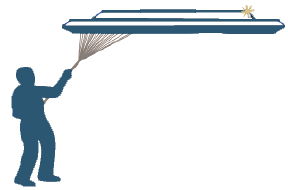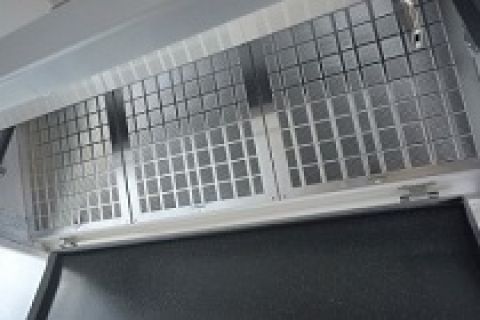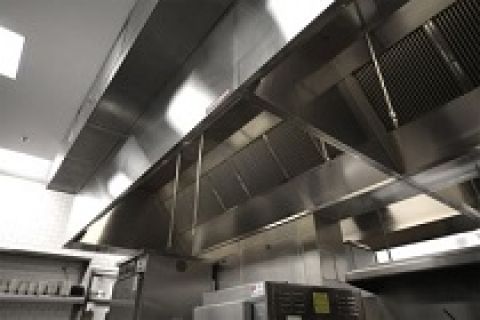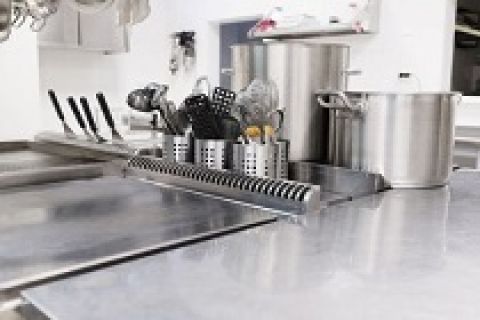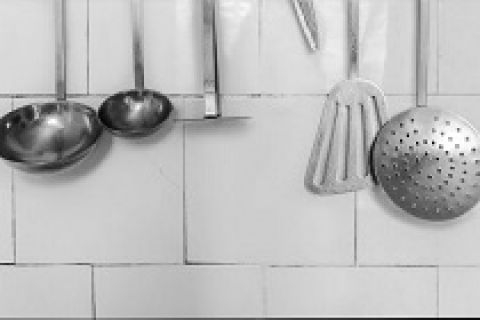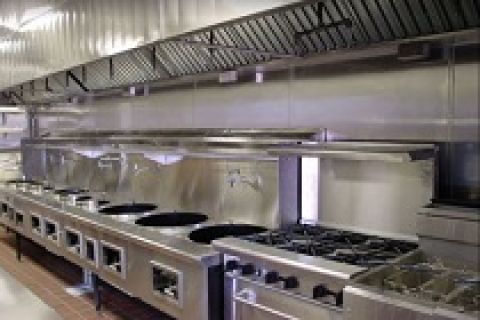How Pressure Washing Can Protect Your Restaurant from Fire Hazards
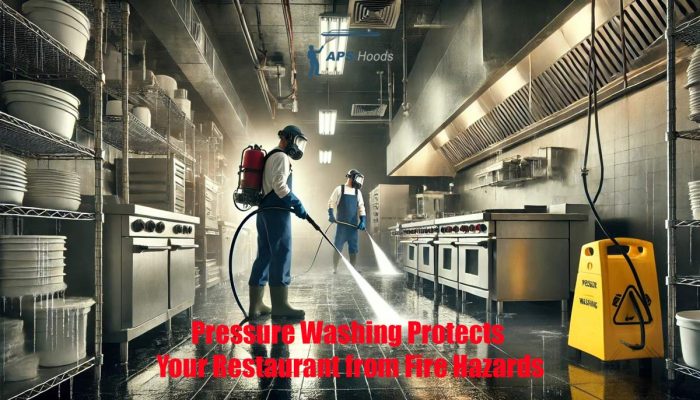
Did you know that grease build-up is one of the leading causes of fires in commercial kitchens? According to the Federal Emergency Management Agency (FEMA), more than 60% of restaurant fires originate from cooking equipment, often due to inadequate cleaning and maintenance. This is where pressure washing becomes an essential practice—not just for cleanliness, but also for fire prevention.
Pressure washing is a powerful cleaning method that removes stubborn grease, grime, and other residues from kitchen equipment, walls, and surfaces. When done professionally, it not only enhances the safety of your establishment but also helps meet stringent health and safety regulations like the NFPA 96 standards.
For restaurant owners, maintaining a clean and fire-safe kitchen is more than a regulatory requirement—it’s a responsibility to safeguard your staff, customers, and business reputation. With professional pressure washing services, you can significantly reduce fire hazards, improve operational efficiency, and even enhance the curb appeal of your restaurant.
Prioritize Fire Safety and Cleanliness Today! Protect your restaurant, staff, and customers with professional pressure washing services from APS-Hoods. Request a FREE quote at 800-750-7313 and ensure your establishment meets the highest standards of safety and cleanliness.
What Is Pressure Washing and Why Does It Matter for Fire Safety?
Pressure washing, also known as power washing, is a deep-cleaning technique that uses high-pressure water spray to remove stubborn contaminants such as dirt, grease, and oil. This cleaning method is particularly effective in commercial kitchens, where the accumulation of fat, oil, and grease (FOG) can pose significant fire risks if left unchecked. If you’re interested in how this works in practice, make sure you check out the following article: Pressure Washing Benefits for Hoods, Fans, & Ovens
How Pressure Washing Works
Pressure washing machines use water pressurized to hundreds or even thousands of pounds per square inch (psi) to dislodge grime and build-up. Professional-grade equipment can also incorporate eco-friendly cleaning agents to ensure that even the toughest stains and residues are removed without damaging surfaces or harming the environment.
This method is especially effective for cleaning:
- Kitchen hoods and exhaust systems
- Fans and ducts
- Ovens, stoves, and grills
- Floors, walls, and other surfaces exposed to grease splatter
The Benefits of Pressure Washing for Restaurants
Implementing a regular pressure washing schedule provides a host of advantages for restaurant owners:
- Fire Hazard Reduction:
By eliminating grease and other flammable residues, pressure washing minimizes the risk of fires starting in cooking areas. - Regulatory Compliance:
The National Fire Protection Association (NFPA) 96 standards require regular cleaning of kitchen exhaust systems. Pressure washing helps your restaurant stay compliant, ensuring you pass inspections with ease. - Improved Hygiene and Air Quality:
A clean kitchen not only prevents fires but also promotes a healthier environment for staff and customers. Clean exhaust systems improve air circulation and reduce odors. - Cost Savings:
Preventative maintenance like pressure washing can save you money in the long run by avoiding costly repairs or downtime caused by fire damage.
When Should You Schedule Pressure Washing?
The frequency of pressure washing depends on the size and operational volume of your restaurant. As a general guideline:
- High-volume restaurants (e.g., those operating 24/7): At least every three months.
- Medium-volume restaurants: Twice a year.
- Low-volume or seasonal operations: Annually.
Scheduling professional cleaning services at regular intervals ensures that your kitchen stays safe, efficient, and compliant with safety regulations.
The Role of Pressure Washing in Preventing Fire Hazards
In commercial kitchens, fire safety is a constant concern. According to the National Fire Protection Association (NFPA), the majority of restaurant fires originate in cooking equipment. This often occurs due to the accumulation of flammable substances like fat, oil, and grease (FOG) in exhaust systems, hoods, and other critical areas. Regular pressure washing plays a pivotal role in mitigating these risks, ensuring your establishment remains safe for staff and patrons alike.
How Pressure Washing Reduces Fire Risks
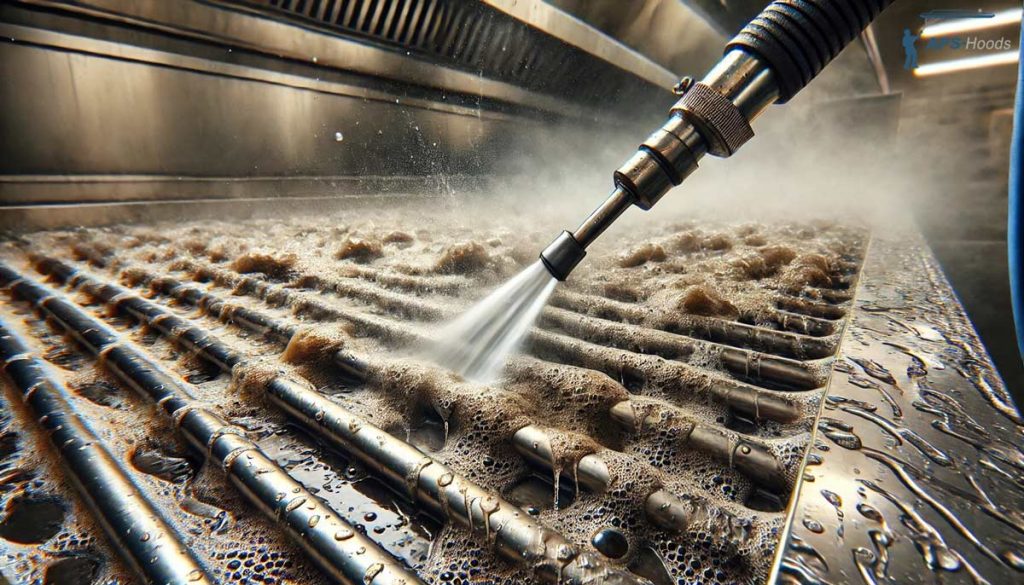
Professional pressure washing services are specifically designed to eliminate fire hazards in kitchens by addressing these key areas:
- Removing Grease Build-Up
Over time, grease and oil residue accumulate in kitchen hoods, ducts, and exhaust systems. These substances are highly flammable and can easily ignite under high cooking temperatures. Pressure washing removes these deposits, reducing the chances of a grease fire. - Improving Equipment Efficiency
Clean kitchen equipment operates more efficiently, with better airflow and heat regulation. This not only enhances fire safety but also extends the lifespan of your appliances, saving you money on repairs and replacements. - Ensuring Regulatory Compliance
Pressure washing helps you meet NFPA 96 standards, which mandate regular cleaning of kitchen exhaust systems. Compliance with these regulations minimizes liability and ensures your restaurant passes fire and health inspections. - Boosting Overall Hygiene
A clean kitchen is not only safer but also more hygienic. Removing grease and grime reduces bacteria growth, creating a healthier environment for your staff and customers.
Why DIY Cleaning Falls Short
While some restaurant owners may attempt to clean their equipment in-house, DIY cleaning often lacks the thoroughness and effectiveness of professional pressure washing. Common pitfalls of DIY cleaning include:
- Inconsistent Results: Household tools cannot match the power of commercial-grade pressure washing equipment.
- Missed Spots: Exhaust systems and ducts are hard to reach and may be overlooked without proper training.
- Increased Risk: Incorrect handling of cleaning tools can damage equipment or create safety hazards.
For reliable results, it’s always best to partner with certified pressure washing professionals who understand the unique needs of commercial kitchens.
Safeguard Your Restaurant with Professional Pressure Washing
By investing in regular pressure washing, you can:
- Protect your restaurant from grease-related fire hazards.
- Maintain compliance with fire safety regulations.
- Create a cleaner, more welcoming environment for your staff and customers.
Don’t let grease and dirt jeopardize the safety and reputation of your establishment. Schedule professional cleaning services today to enjoy peace of mind and operational efficiency.
What Restaurant Owners Need to Know About Pressure Washing and Fire Safety
For restaurant owners, pressure washing is more than a maintenance task—it’s a critical component of fire safety and operational efficiency. However, not all cleaning efforts are created equal. To ensure maximum effectiveness, you need to understand key considerations related to safety standards, costs, environmental impact, and operational planning.
1. Understanding Safety Standards: NFPA 96 Compliance
Pressure washing in commercial kitchens must adhere to the National Fire Protection Association (NFPA) 96 standards, which outline fire safety requirements for ventilation control and grease removal systems. Here’s what you need to know:
- Regular Cleaning Intervals: Depending on the size and volume of your operations, pressure washing should be scheduled quarterly, semiannually, or annually.
- Professional Certification: Only certified professionals should perform pressure washing to ensure compliance. Look for providers with NFPA or local regulatory certifications.
- Visible Documentation: Keep certificates of cleaning displayed in your establishment to assure health inspectors and customers of your commitment to safety.
2. Managing Costs and Maximizing ROI
While some restaurant owners may hesitate to invest in professional pressure washing services, the long-term cost savings far outweigh the initial expense. Here’s how:
- Reduced Repair Costs: Regular cleaning prevents grease build-up that can damage equipment, reducing the need for costly repairs or replacements.
- Fire Risk Mitigation: Avoiding even a single grease fire can save thousands in potential damages and insurance claims.
- Operational Efficiency: Clean equipment runs more efficiently, reducing energy consumption and utility bills.
3. Addressing Environmental Concerns
Professional pressure washing services are designed to minimize environmental impact:
- Water Conservation: Advanced equipment uses less water than traditional cleaning methods, making the process eco-friendly.
- Wastewater Management: Proper disposal of wastewater is crucial to avoid environmental violations. Professional cleaners are equipped to handle this responsibly and comply with local regulations.
- Eco-Friendly Products: Many service providers use biodegradable and non-toxic cleaning agents, further reducing environmental harm.
4. Minimizing Operational Disruption
Scheduling pressure washing services strategically can help minimize downtime for your restaurant:
- Plan During Off-Hours: Most professional cleaning services offer flexible scheduling, allowing work to be completed when your kitchen is not in use.
- Prepare Your Team: Inform your staff about cleaning schedules in advance to ensure a smooth process with minimal disruption.
- Focus on Key Areas: Prioritize high-risk areas like kitchen hoods, exhaust systems, and appliances to reduce cleaning time.
Professional Pressure Washing: A Must-Have for Every Restaurant
By considering these factors, restaurant owners can ensure their kitchens remain safe, compliant, and operationally efficient. Pressure washing is not just about cleanliness—it’s a proactive approach to fire prevention and environmental responsibility.
Protect your restaurant, staff, and customers with eco-friendly, certified pressure washing services from APS-Hoods. Call us today at 800-750-7313 for a FREE consultation and discover how we can help you maintain the highest standards of safety and cleanliness.
How to Ensure NFPA 96 Compliance with Professional Pressure Washing
Adhering to the National Fire Protection Association (NFPA) 96 standards is crucial for commercial kitchen safety. These guidelines focus on ventilation control and grease removal to reduce fire hazards in restaurants. By incorporating professional pressure washing into your maintenance routine, you can meet these standards with confidence and avoid potential fines, shutdowns, or fire incidents.
Key NFPA 96 Recommendations for Pressure Washing
To maintain compliance, restaurant owners must follow these essential guidelines:
- Regular Cleaning Intervals:
NFPA 96 mandates specific cleaning schedules depending on the volume and type of your restaurant operations:- High-volume kitchens (e.g., 24-hour establishments): Quarterly cleaning.
- Medium-volume kitchens: Semiannual cleaning.
- Low-volume or seasonal kitchens: Annual cleaning.
- Professional Cleaning Services:
NFPA 96 strongly recommends hiring certified professionals for pressure washing. These experts use specialized equipment and techniques to thoroughly clean kitchen hoods, ducts, fans, and exhaust systems, ensuring fire hazards are eliminated. - Proper Wastewater Management:
All wastewater generated during pressure washing must be disposed of in accordance with local environmental regulations. Improper disposal can lead to fines and environmental damage. Professional services ensure compliance with these laws, protecting your business from liability. - Visible Certification:
After each cleaning, you should receive a certificate of compliance from your service provider. Display this certificate prominently in your establishment to demonstrate your commitment to safety and compliance during health and safety inspections.
Why NFPA 96 Compliance Matters for Your Restaurant
Meeting NFPA 96 standards is about more than avoiding fines or passing inspections—it’s about ensuring the safety and longevity of your business. Here’s why compliance is critical:
- Fire Risk Reduction: Grease build-up in exhaust systems is a leading cause of restaurant fires. Regular cleaning significantly lowers this risk.
- Customer and Staff Safety: A clean and well-maintained kitchen protects everyone in your establishment.
- Operational Efficiency: Clean ventilation systems improve airflow, reduce energy consumption, and keep your kitchen running smoothly.
- Regulatory Protection: Compliance shields your restaurant from penalties, closures, and legal liabilities.
Steps to Comply with NFPA 96 Using Professional Pressure Washing
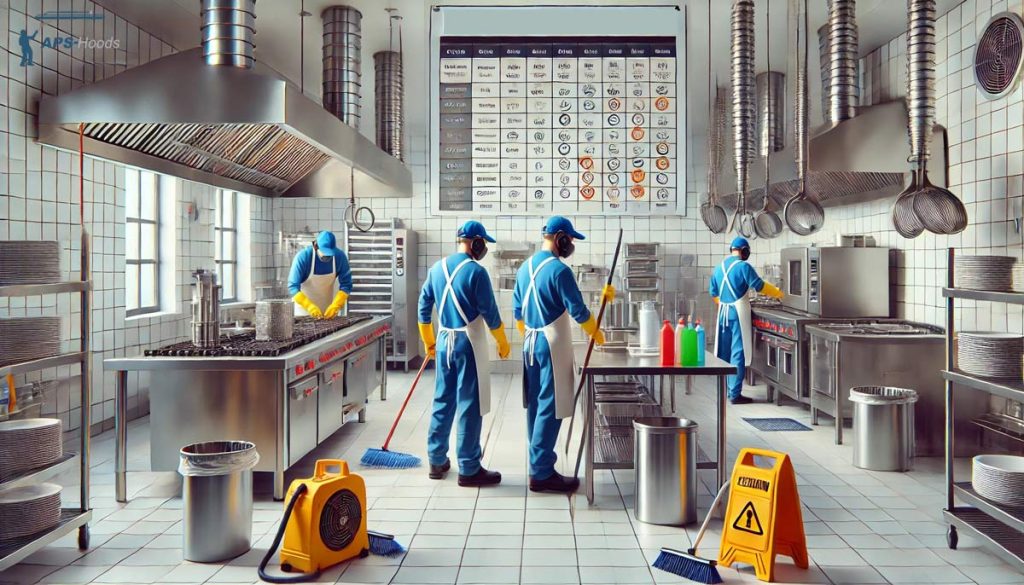
- Evaluate Your Kitchen’s Needs:
Assess your restaurant’s size, cooking volume, and grease accumulation to determine how often pressure washing is required. - Choose a Certified Service Provider:
Partner with professionals experienced in NFPA 96 standards. Look for certifications and references to ensure quality service. - Schedule Regular Maintenance:
Plan pressure washing services during off-peak hours to minimize disruption to your operations. - Maintain Documentation:
Keep all cleaning records and compliance certificates organized and readily accessible for inspections. - Train Your Staff:
Educate your team on the importance of NFPA 96 compliance and how regular cleaning contributes to fire safety.
Frequently Asked Questions About Pressure Washing for Restaurants
As a restaurant owner, you likely have questions about how pressure washing can improve your operations and ensure compliance with safety standards. Here are the most frequently asked questions, along with detailed answers to help you make informed decisions:
1. Why Is Pressure Washing Essential for Fire Safety in Restaurants?
Pressure washing is critical because it removes grease, oil, and other flammable residues that build up in kitchen hoods, exhaust systems, and on equipment. These substances are the leading causes of grease fires in commercial kitchens. Regular pressure washing ensures your restaurant meets fire safety standards and reduces fire risks significantly.
2. How Often Should Pressure Washing Be Scheduled to Comply with NFPA 96 Standards?
The frequency of pressure washing depends on your restaurant’s operational volume:
- High-volume kitchens (e.g., 24/7 establishments): Every 3 months.
- Medium-volume kitchens: Every 6 months.
- Low-volume or seasonal kitchens: Annually.
Working with a professional cleaning service ensures your schedule aligns with NFPA 96 requirements.
3. Can Pressure Washing Help My Restaurant Pass Health and Fire Inspections?
Yes, absolutely. Regular pressure washing not only keeps your kitchen clean but also ensures compliance with health and fire safety standards, such as those outlined by NFPA 96. This proactive approach makes passing inspections straightforward and stress-free.
4. Is Professional Pressure Washing More Cost-Effective Than In-House Cleaning?
Yes, professional services save time and resources in the long run. DIY cleaning often results in incomplete grease removal, wasted water, and potential damage to equipment. Certified professionals use advanced tools and techniques to deliver thorough and efficient results, maximizing your investment.
5. What Should I Look for in a Professional Pressure Washing Service?
When selecting a service provider, look for:
- NFPA Certifications: Ensure they are certified to handle commercial kitchen cleaning.
- Experience: Opt for providers with a track record of working with restaurants.
- Eco-Friendly Practices: Choose companies that use water-saving equipment and biodegradable cleaning agents.
- Wastewater Management: Verify that they comply with local regulations for wastewater disposal.
6. How Does Pressure Washing Impact My Restaurant’s Operations?
Professional pressure washing can be scheduled during off-hours to minimize disruption. Cleaning may take several hours or up to a day, depending on the size and condition of your kitchen. Planning ahead ensures smooth operations with minimal downtime.
7. Are There Eco-Friendly Pressure Washing Options Available?
Yes! Many professional services now offer eco-friendly solutions, including:
- Low-water usage systems.
- Biodegradable, non-toxic cleaning products.
- Proper handling and disposal of wastewater in compliance with environmental laws.
These options protect your equipment, reduce environmental impact, and support sustainability goals.
8. How Does Pressure Washing Support NFPA 96 Compliance?
Pressure washing ensures that kitchen exhaust systems, hoods, and other critical areas are free from grease and grime, meeting NFPA 96’s guidelines. Compliance certificates issued after cleaning should be displayed in your restaurant to demonstrate adherence to fire safety standards.
9. What Are the Risks of Not Pressure Washing Regularly?
Neglecting regular cleaning can lead to:
- Increased Fire Risk: Grease build-up is highly flammable.
- Health Violations: Dirty kitchens attract pests and bacteria.
- Equipment Damage: Grease and grime can degrade equipment, leading to costly repairs or replacements.
- Inspection Failures: Non-compliance with safety standards can result in fines or even closures.
Stay Ahead of Inspections and Fire Hazards with Professional Pressure Washing
In the fast-paced restaurant industry, cleanliness and safety are non-negotiable. Pressure washing is not just an optional service—it’s a crucial investment in your business’s safety, compliance, and reputation. By partnering with a professional pressure washing provider, you can ensure your kitchen is not only spotless but also meets the highest standards of fire safety and hygiene.
Why Choose APS-Hoods for Your Pressure Washing Needs?
At APS-Hoods, we specialize in providing professional, eco-friendly pressure washing services tailored specifically for commercial kitchens. Here’s why restaurant owners trust us:
- Certified Experts: Our team is fully certified and trained to meet NFPA 96 standards, ensuring your restaurant complies with all fire safety regulations.
- Comprehensive Cleaning: From kitchen hoods and exhaust systems to floors and outdoor spaces, we handle every aspect of your restaurant’s cleaning needs.
- Eco-Friendly Solutions: We use water-efficient equipment and biodegradable cleaning agents, prioritizing environmental sustainability while delivering top-notch results.
- Flexible Scheduling: Our services are available during off-hours, minimizing disruptions to your operations.
- Proven Track Record: With years of experience serving restaurants across Denver, we’ve built a reputation for excellence and reliability.
The Benefits of Regular Pressure Washing
- Fire Prevention:
Remove flammable grease build-up from hoods, ducts, and equipment, reducing the risk of grease fires. - Regulatory Compliance:
Stay on top of NFPA 96 standards and local health and safety codes to avoid fines or shutdowns. - Enhanced Hygiene:
Improve air quality, reduce odors, and create a healthier work environment for staff and customers. - Customer Appeal:
A clean restaurant exterior and interior leave a lasting impression, boosting customer loyalty and reviews. - Cost Savings:
Preventative maintenance like pressure washing reduces the need for expensive repairs or replacements, saving money over time.
Your Partner in Restaurant Safety and Cleanliness
Whether you run a small café or a bustling full-service restaurant in Denver, CO, APS-Hoods has the expertise and equipment to keep your establishment fire-safe, spotless, and inspection-ready. Our services are tailored to your unique needs, ensuring you receive the best value and results.
Schedule Your Professional Pressure Washing Today!
Don’t let grease and grime jeopardize the safety, compliance, and reputation of your restaurant. Take the proactive step toward a safer, cleaner, and more successful establishment with APS-Hoods.
Call us today at (800) 750-7313 for a FREE estimate or visit our website to book your next service. Let our team of certified experts handle the hard work, so you can focus on delighting your customers.
Trackback from your site.
